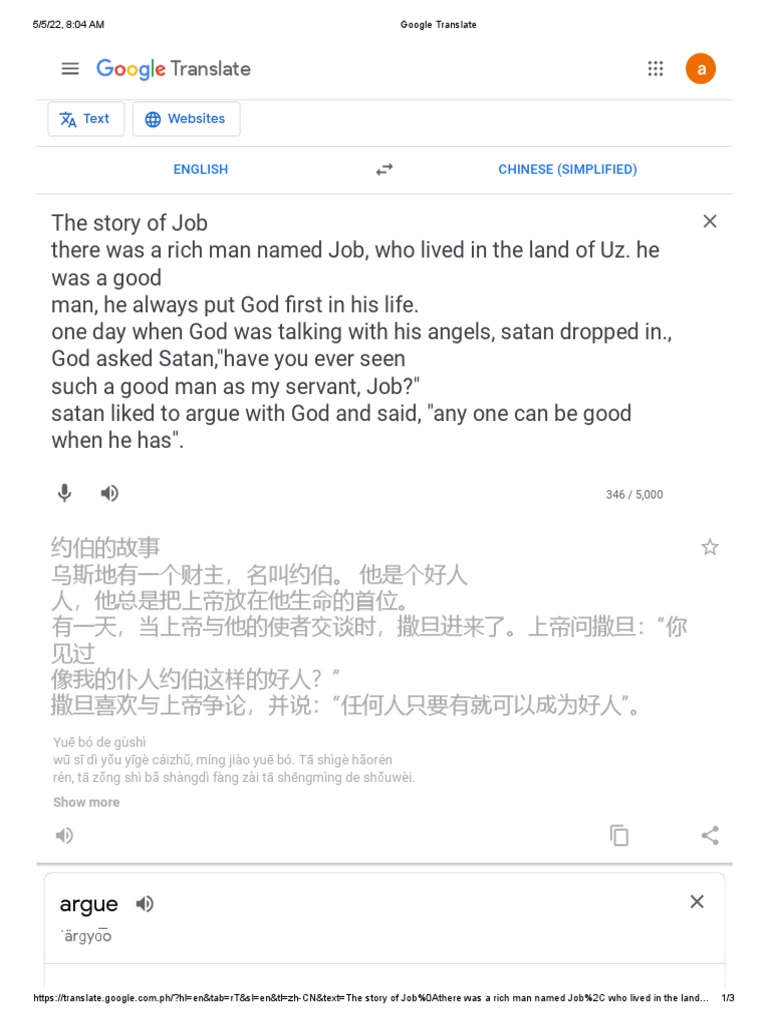The narrative of Job occupies a prominent place in the annals of religious literature, captivating the minds and hearts of countless individuals across diverse cultures. Though ostensibly a tale of suffering and divine testing, its profound layers of meaning resonate deeply, offering rich insights into the human condition and the divine nature. Within the Bahá’í framework, the story transcends its historical and theological context, providing a tapestry of spiritual lessons that underline the empirical trials inherent to all human experiences.
At its core, the story of Job presents a quintessential struggle between faith and despair. Job, an epitome of piety and virtue, experiences an unrelenting barrage of misfortunes, prompting profound inquiries into the justice of existence and the essence of divine wisdom. This foundational paradox elicits a fundamental observation: why do the righteous suffer while the wicked prosper? Such an inquiry is not merely philosophical; it is an existential dilemma that challenges individuals to confront their own belief systems and the tenets of divine justice.
Within the Bahá’í paradigm, the duality of suffering and patience takes on an elevated significance. It is crucial to recognize that trials are perceived as opportunities for personal transformation and spiritual growth. The narrative encourages adherents to embrace suffering not as a sign of divine abandonment but as a catalyst for deepening one’s faith. This reorientation of perspective allows believers to draw strength from the narrative; Job’s unwavering faith amidst tribulation serves as an indomitable testament to the resilience of the human spirit.
The thematic exploration of divine mystery further deepens the narrative’s allure. The absence of a clear rationale for Job’s suffering compels readers to grapple with the concept of divine will. In Bahá’í thought, the notion that God’s wisdom transcends human understanding provides solace. By surrendering to the idea of a mysterious divine plan, individuals can cultivate a sense of trust in the unfolding of events, irrespective of immediate perceptions. This surrender is not tantamount to fatalism but rather invites active engagement with life’s vicissitudes, fostering an acceptance that is both profound and liberating.
Moreover, the story of Job underscores themes of community and support during periods of tribulation. The discourse between Job and his friends portrays the complexities of human interaction in times of adversity. Friends who intend to console may inadvertently perpetuate suffering through misguided assertions about divine retribution. This highlights a critical teaching: the importance of empathy and understanding in communal relationships. In the Bahá’í view, supportive communities must cultivate a space of compassion, essential for nurturing relationships that are grounded in love and solidarity.
The intersection of faith and rational inquiry is another salient aspect of the narrative. Job’s bold questioning of God challenges the notion of blind faith. Rather, it models a relationship with the divine that is dynamic and characterized by dialogue. This engagement reflects a key Bahá’í principle; it invites individuals to seek knowledge and understanding earnestly, framing doubt as a precursor to stronger belief rather than an obstacle. The journey through doubt can lead to profound insights, enriching the believer’s spiritual experience.
In terms of ethical and moral considerations, the trials of Job raise foundational questions regarding justice and compassion. While Job’s plight invites skepticism about the fairness of existence, it simultaneously extols the virtues of resilience, patience, and humility. Such virtues are hallmarks of the Bahá’í ethical framework, where moral development is emphasized as a lifelong pursuit. Job’s ultimate restoration signifies that virtue may be recognized and rewarded, although not necessarily in ways that align with human expectations. This perspective invites a transformative view of justice—not simply as retribution but as holistic healing.
Furthermore, the repeated return to Job’s initial state of righteousness invites contemplation regarding divine mercy and grace. The Bahá’í writings affirm that God’s love is boundless and enjoins followers to reflect this love in their interactions. Job’s eventual restoration underscores the belief that divine retribution may manifest in myriad forms, with the most significant being spiritual enlightenment and awakening. Such revelations can emerge from the ashes of despair, illuminating pathways to spiritual renewal.
In a more esoteric sense, the narrative invites individuals to consider the interplay between the material and the spiritual. Job, stripped of his earthly possessions yet enriched in faith, embodies the eternal struggle to discern what is truly valuable. This dichotomy resonates deeply within the Bahá’í teachings, where material attachments are often viewed as impediments to spiritual progress. The story illustrates the transient nature of worldly possessions, urging followers to prioritize their spiritual connection with the divine.
In conclusion, the story of Job encompasses a rich tapestry of teachings with implications that are both immediate and profound. The Bahá’í interpretation of this tale amplifies its significance, revealing the intricate complexities of faith, suffering, and divine love. By integrating these teachings into daily life, individuals may not only find solace amid their own trials but also cultivate a spiritual framework that embraces growth, embraces community, and seeks understanding. In this way, the story of Job becomes not merely a tale of endurance, but a celebration of the indomitable spirit of humanity in communion with the divine. As one delves deeper into its intricacies, they find that Job’s journey resonates eternally, echoing the timeless quest for understanding, connection, and ultimately, peace.
